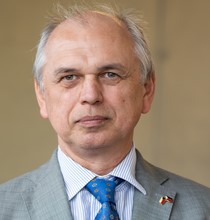ABOUT NCA
NCA as a strong authority takes care of the common interest of its members and draws attention to the importance of clusters in the system of support for innovation and competitiveness in the Czech Republic. The NCA as a strong authority in relation to negotiations with the regions, the state, the EU. Successful clusters have knowledge and skills that can be advantageously used in the areas of Digital Innovation Hubs, RIS3 and other modern topics.
The National Cluster Association (NCA) is a non-state, non-profit organization that brings together entities and individuals with the aim of coordinated and sustainable development of cluster initiatives and development of cluster policy in the Czech Republic based on the concentration of knowledge, experience and expertise to strengthen the competitiveness of the Czech Republic.
The National Cluster Association creates a long-term and competent platform for the development of cluster initiatives in the Czech Republic and an active interface for their internationalisation.
The statutes of the NCA can be found HERE
Terms and conditions of personal data management in the National Cluster Association can be found HERE
STANDARD SERVICES TO NCA MEMBERS:
- Online meetings of NCA members, at least 8 times a year
- Regular NCA Information Service, sent by email, with notifications of events, news and updates, both NCA and its members
- Cluster Day with announcement of the Golden Cluster and awarding of the best projects of the year + evening networking social event (1 member representative)
- Publication of a promotional medallion on the NCA website, beyond the information provided in the Cluster Map
- Possibility of posting news and updates on the NCA website and promoting them on NCA social media
- Apply for membership too, download the application form HERE. Membership fee for 2024 is 500, - CZK. The fee for standard services is 15.000, - CZK excluding VAT.
You can apply for membership too, download the application form HERE. Membership fee for 2025 is 500, - CZK. The fee for standard services is 15.000, - CZK excluding VAT.
PEOPLE IN NCA
President
Vice Presidents
Members of the Board of Directors
Members of the Supervisory Board
Members Team
PROJECTS
Provider: Operational Programme Employment plus
We draw a subsidy from the Operational Programme Employment Plus (hereinafter referred to as "OPZ+") within the project Innovate through education 2, registration number CZ.03.01.03/00/22_040/0002400. Project duration 01/2024 - 12/2026.

Provider: The project is funded by the European Union - DIGITAL EUROPE PROGRAMME and the NATIONAL RENEWAL PLAN
The DIH Northeast consortium is mainly made up of entities from the Liberec and Hradec Králové regions, under the leadership of ARR, the Regional Development Agency. We work with partners in Germany and Poland, our common goal being to build a European digital innovation hub in the region. Success in the the European Commission means that we are close. The last step awaits us - national call announced by the Ministry of Industry and Trade.










